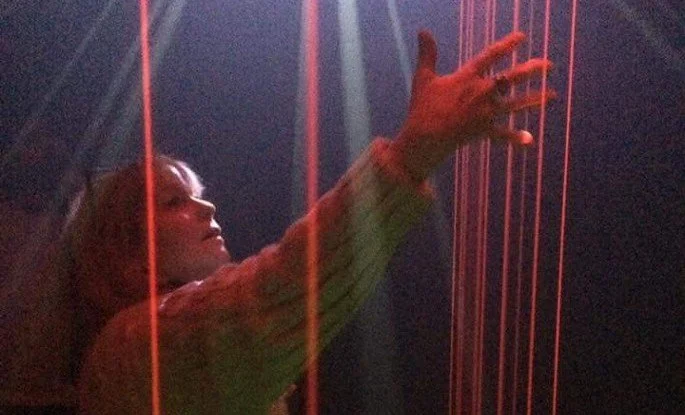“From that time on, Jesus began to show his disciples that he must go to Jerusalem and undergo great suffering at the hands of the elders and chief priests and scribes, and be killed, and on the third day be raised. And Peter took him aside and began to rebuke him, saying, “God forbid it, Lord! This must never happen to you.” But he turned and said to Peter, “Get behind me, Satan! You are a stumbling block to me; for you are setting your mind not on divine things but on human things.”
Matthew 16:21-23
The modern philosopher Slavoj Zizek echoes Christ’s rebuke of Peter (when Peter rejects the reality that God will die) when he speaks about “the pressure of meaning” as the place “the devil waits upon you.” Like Hessert (see “The Open Soul - Part 7) , he asserts that we should reject the meaning-making narrative.
Christianity is the acceptance of meaninglessness.[1] Both Hessert and Zizek use the holocaust as an example of why we must move away from meaning making. In the holocaust, (as in the crucifixion) God cannot be found through power or meaning, but must be found in their absence.[2] In the face of such great evil, truths are so traumatic, they resist being integrated into the universe of meaning.[3]
It is only the suffering God (Christ crucified) that answers such questions. In Christ crucified, God moves from Objectivity (a transcendent Master who can pull the strings from above and make things as they should be) to Subjectivity (an infinite plurality whose nature cannot be defined)[4]. Zizek cautions us to not try to make meaning of the crucifixion, but to allow it to be what it was – the destruction of God and in this way a revelation of the destruction of ultimate meaning.[5]
Hessert articulates this in this way:
“Christ crucified is the end of the expectation that power will bring life to its fulfillment in the sense of actualizing its present potential. Faith in Christ crucified means giving up the kind of justification of life that realizing one’s potential would offer. There is thus a direct correlation between faith as the surrender of the claim to divine power and “Christ crucified” which is the absence of such divine power.”[6]
The Judeo-Christian tradition may have been inviting us to move away from this quest for ultimate meaning from the beginning. The Eden story can be seen as a cautionary tale against the quest for meaning. Eve’s pursuit of knowledge to make meaning worked in the opposite way intended and rather than creating meaning, cast her and Adam out of paradise.
The all too human quest for meaning is the proverbial forbidden fruit, the ultimate idolatry. It casts us out of an open acceptance of the reality that is and into an anxious pursuit that never finds fulfillment.
It is only through absolute emptying of self and trust in grace that the human is freed from the need for meaning-making and is able to live in a space where we are ”not glad because of any special thing or …distressed by anything at all, for all will be well”[7]
[1] Slavoj Zizek. “The Pressure of Meaning” 25:08-25:58 https://www.youtube.com/watch?v=-qVAxuHRKOw
[2] Hessert, 29.
[3] Slavoj Zizek, “Only a Suffering God can Save Us.” Lacan.com, accessed December 14, 2022, https://www.lacan.com/zizshadowplay.html Section 2 Kierkegaard
[4] Hannah Arendt, The Human Condition. ed. Margaret Canovan (Chicago: University of Chicago Press, 1998), 10.
[5] Slavoj Zizek, “Only a Suffering God can Save Us.” Lacan.com, accessed December 14, 2022, https://www.lacan.com/zizshadowplay.html Section 2 Kierkegaard
[6] Paul Hessert. Christ and the End of Meaning: The Theology of Passion. Rockport MA: Element Inc. Out of Print (1993): 31.
[7] Norwich, 153.





